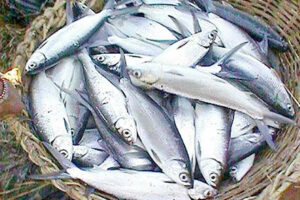THE GOVERNMENT is developing a sustainable and low-cost feed for milkfish and tilapia to address rising aquaculture production costs.
The new feed uses by-products from corn and poultry abattoirs and copra meal to replace fish meal.
“The ongoing crises, COVID-19 pandemic and Russia-Ukraine conflict, have had a ripple effect on the whole seafood value chain. It’s not just food and fuel, it also affects feed for livestock and aquaculture since the majority of our feedstuff is sourced from outside the country,” Agriculture Secretary William D. Dar said in a statement.
“What we need are sustainable technologies and interventions that can provide our fishing communities locally available ingredients providing (the added) benefit of cost savings and reduced imports,” he added.
The project is a collaboration between the Department of Agriculture’s (DA) National Fisheries Research and Development Institute (NFRDI) and the Southeast Asian Fisheries Development Center’s (SEAFDEC) Aquaculture Division.
The feed formula was developed by the Aquaculture Division’s Head of Technology Verification and Extension, Roger Edward P. Mamauag.
During the field tests, SEAFDEC reported that the milkfish and tilapia given the alternative feed were comparable with fish given commercial feed in terms of growth performance and other biological parameters.
“One of the major problems that we wanted to address through this project is to lower the cost of feed, which comprises 50 to 70% of the production cost. By making the feed cost-effective and sustainable it will increase profits and encourage more fish farmers to venture in aquaculture,” NFRDI Director Lilian C. Garcia said.
The new feed costs P27 per kilogram (kg) for milkfish and P24 per kg for tilapia. Commercial feed typically costs P33-35 per kg for milkfish and P32-34 per kg for tilapia.
The DA said the expensive component of commercial fish feed is fish meal. It is also resource intensive as obtaining it requires harvesting fish from the ocean just to have raw material.
“While plant-based protein sources like soybean meal and wheat gluten can provide lower-cost alternatives, the ongoing Ukraine crisis has made prices of imported feedstuff volatile and therefore unsustainable,” the department said.
Mr. Dar said that the project will help address the ecological impact of supplying the aquaculture industry.
“With this verified technology, we can now transfer this to the private sector particularly, feed milling processors… making the technology more accessible to fish growers and farmers,” he added. — Luisa Maria Jacinta C. Jocson
